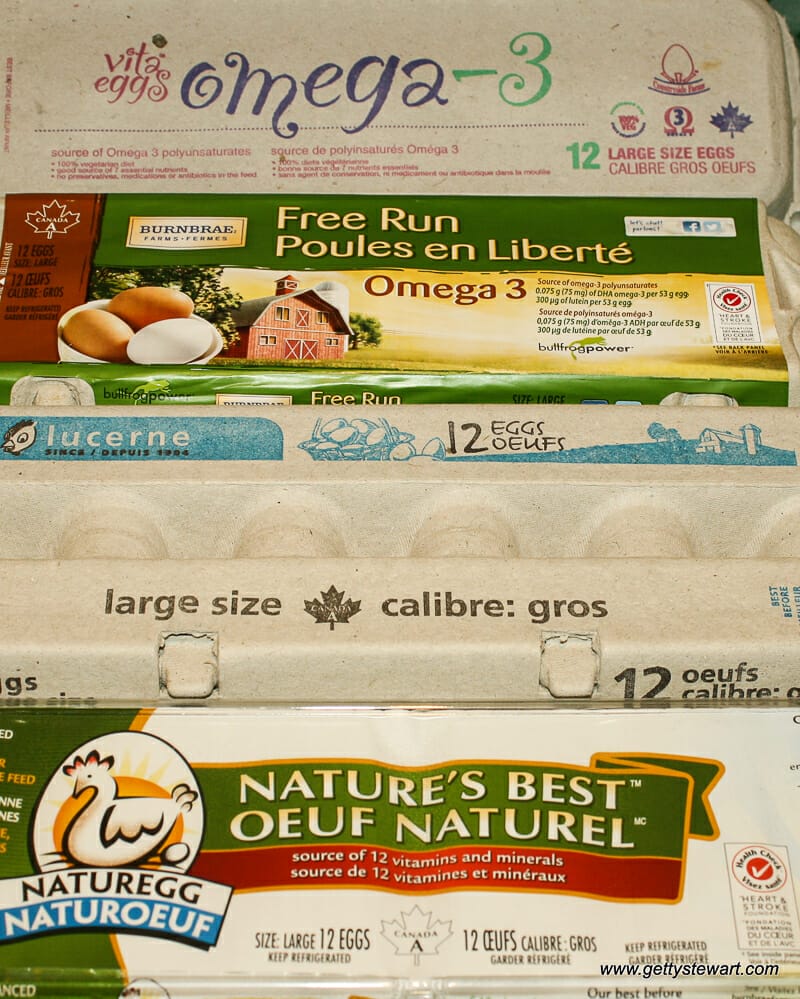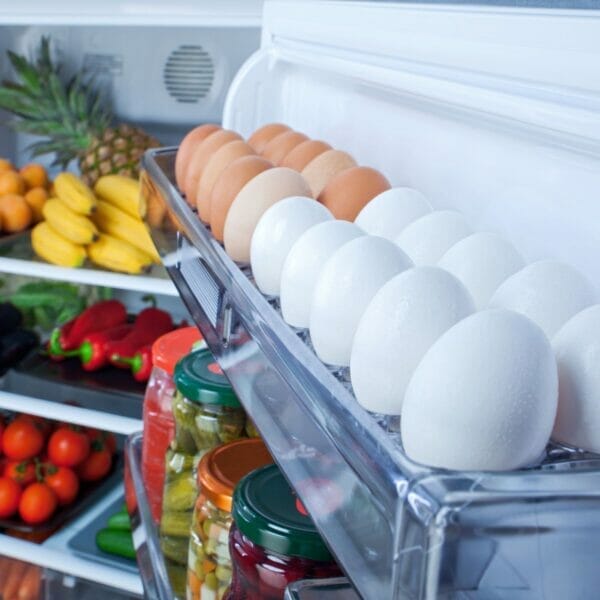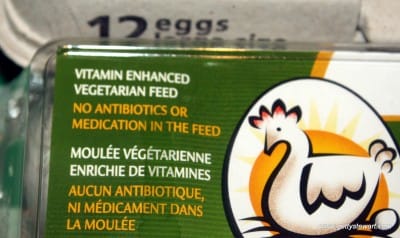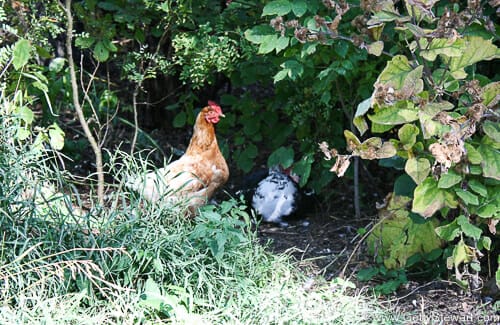Choosing Eggs – Which Carton of Eggs to Buy
Choosing eggs at the grocery store can be confusing. There are SO many options and descriptions on the cartons. What does it all mean and which ones should you buy?

Occasionally I get eggs from my sister’s hens that roam about on their farm. But, like most people, I usually get my eggs at the grocery store where it’s easy to be overwhelmed by various packaging and claims found on egg cartons. In one visit, I saw all of these options:
- Free Run
- Free Range
- Furnished/Enriched Caged
- Comfort Coop
- Nest laid
- Standard or Classic Egg
- Organic
- Omega 3
- Vitamin Enhanced
- Omega 3 Plus
- Vegetarian
It’s hard to keep up with all these terms. What do they mean? Which eggs should I buy?

First, let’s just get one thing straight – there is no bad egg! If you’re choosing eggs – no matter what kind – you’re making a good choice. Eggs are a good, healthy and affordable source of nutrients. Buy whatever eggs meet your personal preferences and that you can afford.
In Canada, all eggs sold in stores:
- are Grade A quality
- are antibiotic or hormone free (whether the carton says so or not)
Choosing the Right Eggs
The right egg carton is the one that fits your preferences for value, nutrient content, animal welfare, name brand, packaging, supporting local, or whatever.
Choosing Eggs For Best Price
Choose standard, regular eggs in traditional packaging. Choose either brown or white eggs, they are the same on the inside, they just come from different breeds of chicken.

Choosing Eggs For Best Nutrient Content
Want extra nutrients? Choose eggs from hens that have been fed a very specific diet of nutrient rich foods like flaxseed to increase Omega 3 fatty acids or Vitamin E to boost Vitamin E content. It’s a convenient way of getting these nutrients if you’re not getting them from other sources. Look for eggs labeled: Vitamin Enhanced, Omega 3 or Omega 3 Plus eggs. These eggs cost more. You’ll find the following labels:
Omega 3 or Omega 3 Plus Eggs
Hens are fed a diet high in foods containing Omega 3 (flaxseed) – housing conditions vary
Vitamin Enhanced Eggs
Hens are fed diets enriched with various nutrients eg. Vitamins D, E and B12 and Folacin – housing conditions vary
Vegetarian Eggs
Hens are fed food based on plant material only, no animal by-products (chickens are naturally omnivorous)
Organic Eggs
Hens are fed organic food (no synthetic herbicides or pesticides) and housing must include nest boxes, perches, litter (for pecking) and some access to outdoors
Choosing Eggs For Greatest Hen Comfort

Like me, you probably like the idea of hens roaming green pastures where they can do their thing and come home to roost in a warm, comfy shelter. And, yes, you can find local farmers and buy eggs directly from them. It’s a great option, especially if you can visit the farm and get to know your farmer.
But we know that feeding the world can’t rely on this approach alone. That’s why we have commercial egg farmers to provide us with eggs. Concern for food safety and animal welfare has caused the industry to become more standardized with continual improvement and research into the most efficient, effective and animal friendly way to produce quality eggs.
Here are some of the different housing conditions hens are kept in. You’ll usually find these labels on the egg carton, if you don’t, then it’s likely that the eggs came from hens in a conventional housing system.
Conventional Housing
A group of hens in a cage with no perch or nest box.
Free Run Eggs
Hens are kept in an open barn, often with perches and nest boxes (access to outdoor space is not required).
Free Range Eggs
Hens are kept in open barn with some access to outdoors (weather permitting). The size of access and what the outdoor space is like (concrete, bare ground or pasture) can vary with each farm.
Enhanced/Comfort Coop/Furnished/Enriched/Nest Laid Eggs
Hens are caged in small groups. They have more space than conventional housing, access to a private nest box, scratch pads and perch bars.
Pastured Chickens
Hens are on pastures, are moved to new pastures and stay in coops at night (typically, small flocks cared for by independent, local farmers)
I hope this information helps you when you make your next egg purchase. Which type of eggs will you choose?
More deep-dive articles on eggs
Select, store and serve seasonal food for everyday cooking with Getty. Getty is a food educator and Professional Home Economist, who loves sharing tips and recipes following the seasons from her Canadian kitchen. Sign up to get seasonal tips and recipes delivered to your inbox. Learn more about Getty or check out her books and pdf guides.

